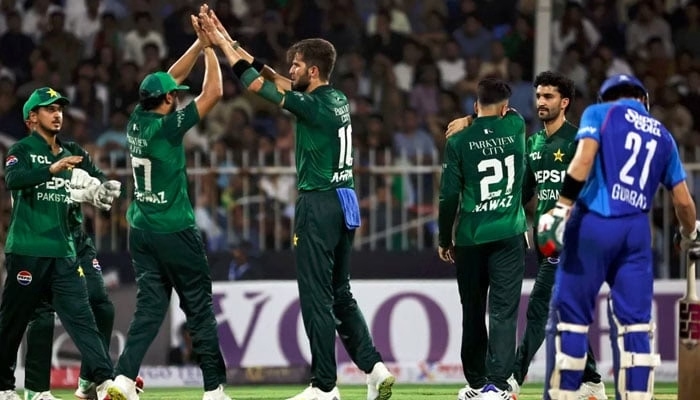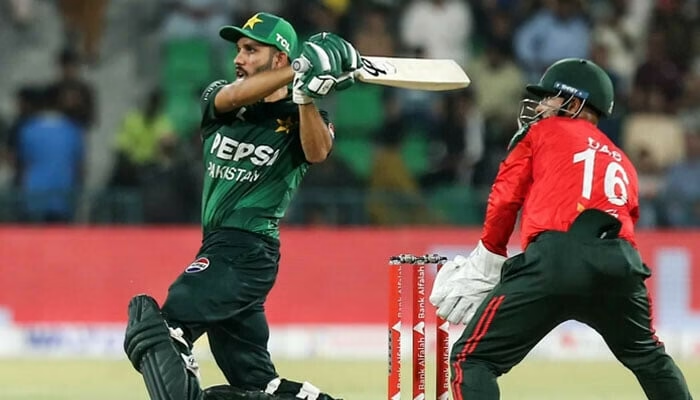The Blind T20 World Cup currently being held in Pakistan has become the center of controversy following India’s refusal to grant a No Objection Certificate (NOC) for its team to travel to Pakistan. The issue was escalated during the World Blind Cricket Council (WBCC) meeting held in Multan, leading to a significant decision: the hosting rights for the Women’s Blind Cricket World Cup, previously assigned to India for next year, have been withdrawn. This development underscores the impact of political tensions on international sports, particularly cricket.
India’s NOC Refusal and Its Implications
India’s refusal to grant an NOC for its team to participate in the Blind T20 World Cup in Pakistan is not an isolated incident. In the 2022 Blind World Cup, India also denied visas to the Pakistan team, raising concerns about the feasibility of cross-border sporting events.
The decision by the WBCC to strip India of its hosting rights for the Women’s Blind Cricket World Cup is a direct response to these repeated hurdles. This action aims to uphold the spirit of fair competition and ensure equal opportunities for all participating nations.
Decisions Taken at the WBCC Meeting
During the WBCC meeting in Multan, several key resolutions were made:
- Withdrawal of Hosting Rights
India’s inability to facilitate smooth participation for all teams led to the decision to withdraw its hosting rights for the Women’s Blind Cricket World Cup. - Neutral Venues for International Events
It was decided that until the political climate between Pakistan and India improves, neither country will host international blind cricket events. Instead, tournaments will be held at neutral venues to ensure inclusivity and fair play. - Focus on Political Neutrality in Sports
The council emphasized the importance of separating sports from political tensions, advocating for measures to protect the integrity of blind cricket.
Impact on Blind Cricket
Blind cricket serves as a platform for visually impaired athletes to showcase their talent and overcome barriers. However, the ongoing political tensions between India and Pakistan have cast a shadow over the sport.
- Athletes’ Disappointment: Players who have trained extensively for such tournaments now face uncertainty due to administrative and political decisions.
- Organizational Challenges: Hosting events at neutral venues increases logistical complexity and costs for organizing bodies.
- Fan Disengagement: Spectators lose the opportunity to support their teams in home conditions, diminishing the excitement surrounding these events.
India-Pakistan Relations in Sports
The strained relations between India and Pakistan have long affected bilateral and multilateral sporting engagements. Cricket, the most popular sport in both nations, often becomes a casualty of political discord. While high-profile tournaments like the ICC World Cup or Asia Cup manage to bring the two sides together on neutral grounds, smaller events like the Blind World Cup face greater challenges.
Reactions from Stakeholders
World Blind Cricket Council (WBCC)
The WBCC expressed regret over the repeated obstacles faced by the Pakistan team, emphasizing the need for a level playing field. The decision to withdraw India’s hosting rights was described as a step towards ensuring fairness in blind cricket.
Pakistan Blind Cricket Council (PBCC)
The PBCC welcomed the decision, highlighting how visa and NOC refusals have hindered Pakistan’s participation in global events. They reiterated their commitment to promoting blind cricket despite the challenges.
Indian Blind Cricket Council
While there has been no formal statement from the Indian side, the decision has sparked debate over the role of sports in bridging political divides.
The Road Ahead for Blind Cricket
To sustain the growth of blind cricket amid these challenges, the WBCC and participating nations must adopt innovative strategies:
- Enhanced Collaboration: Countries should work together to minimize political interference in sports.
- Technological Solutions: Virtual meetings and remote training can help maintain international cooperation.
- Promotion of Neutral Venues: Hosting events in politically neutral countries can ensure smooth participation for all teams.
The Blind T20 World Cup controversy underscores the profound impact of political tensions on international sports. The decision to strip India of its hosting rights for the Women’s Blind Cricket World Cup reflects the WBCC’s commitment to fairness and inclusivity. As both nations continue to navigate their strained relations, the future of blind cricket depends on finding common ground and prioritizing the spirit of the game over politics.



